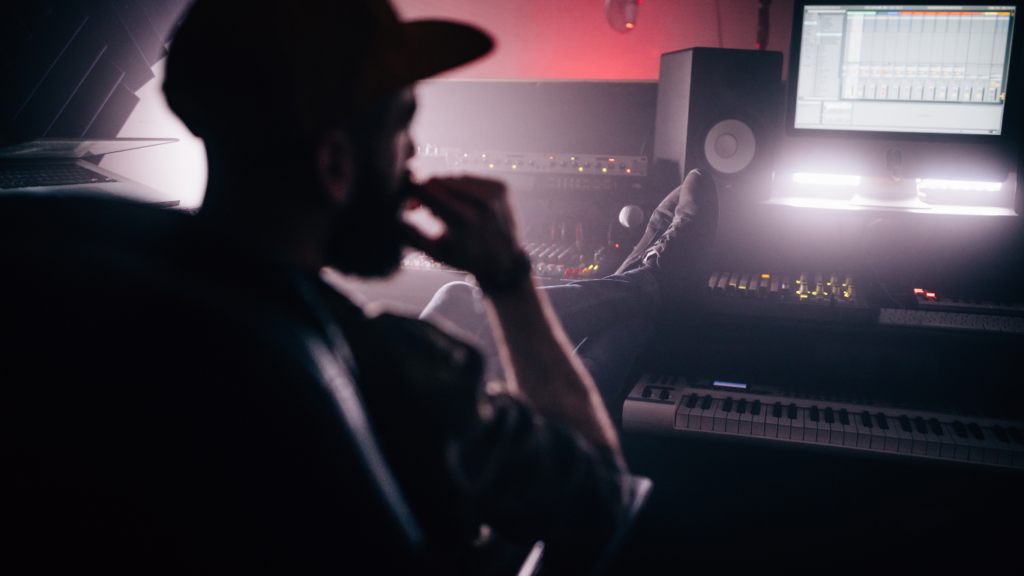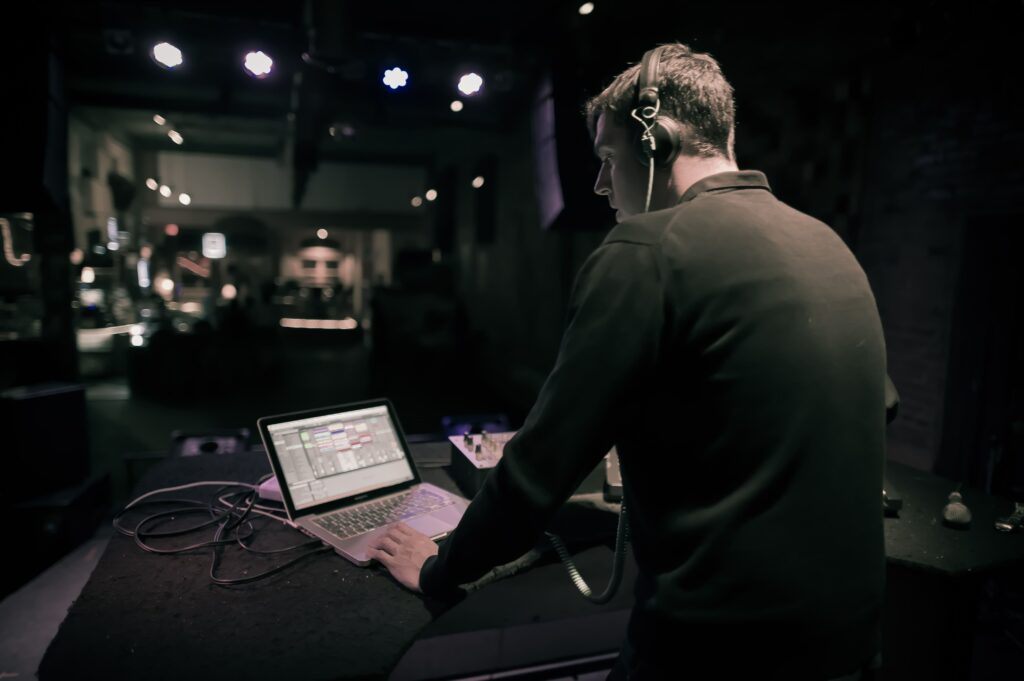
How to Structure Deals with Artists for Your Agency
Finding the sweet spot between event promotion expenses and revenue from ticket sales is the secret to generating a profit as an agency. The COVID-19 epidemic virtually affected all four corners of the world. The entertainment and music industries have incurred severe losses due to closed theaters, canceled tours, increased health constraints, and home-bound music fans.
Although music shows and other live music events have returned, concert venue owners, promoters, and performers still do not appear to be on the same page. Everyone is concerned with increasing their revenue and enhancing their business’s value. Post-pandemic teamwork is critical for music venue owners and musicians. They must collaborate to put on the appropriate performance for the right audience in the right setting. Additionally, ensuring the entire booking process for music venues is simple and effective is in everyone’s best interests.
Be Sure to Book the Right Music Acts
Event operators have a lot on their plates. When you have so many other duties, finding the time to thoroughly study every act or event you’re asked to book is impossible. Researching an act might help you avoid many future problems when you feel you know nothing about it.
Before even requesting or approving a hold, the artist and the venue’s owner must consider if the performance is appropriate for the location. This should determine whether profitability is even achievable. Here are a few things to consider earlier in the venue booking phase:
Artist Pull
Is this a local act? If so, they may have a devoted following that can be depended on to turn up. A split arrangement or even a guarantee may be appropriate in that instance. Even if the performer is not local, previous performances in other areas can forecast how well this event will perform. You may justify a contribution arrangement or a pay-to-play framework if no background or previous attendance has been poor.
Attendance Numbers
You must accurately anticipate your crowd size if you want to book gigs and earn money. The artist and promoter must come up with a fair estimate of how many people will attend the concert. Being genuine is essential; to verify the figure, the owner of the venue should search for some proof of previous performance.
It is significantly better for everyone if a smaller space is sold out than a huge one that is nearly empty. It’s hard to keep the energy high in front of a sparse crowd. Your ability to anticipate your predicted attendance figures will depend on your familiarity with the local music industry, your competitors, your audience, and the average number of attendees.
Related: How to Involve Radio in Your Promotional Strategy
Age
Before Covid-19, a Nielsen survey revealed that over 52% of the US public appreciated live music events so much that they went at least once a year. Following the epidemic, another research found that 96% of individuals expected to attend live shows as soon as they could run smoothly. Owners of venues with age limitations should assess the band’s capacity in light of the age of fans and determine if the event will still be able to draw a crowd.
What’s in a Music Performance Contract?
Finding the ideal artist is one of the process’s most crucial steps, but it is only the beginning. It would be easier to design a fair and realistic offer for everyone concerned if event attendance was foreseeable. However, no one can predict the amount of money generated on any specific performance when the agreement is negotiated, so it is always conceivable for one side to come out ahead and the other to lose out.
The artist’s performance date, time, and length are the most critical aspects of a live event contract. These fundamental elements should be fully specified and approved in detail so that an artist knows how long, where, and when they will be performing.
The payment conditions are a crucial issue you should cover in a performance agreement. This agreement must cover the price paid for the musician’s performance and the method and quantity of payment. The charge for a performance by an artist varies. The majority of ticket revenues often go to the artists.
The band’s pricing will also depend on its size and level of popularity. A larger band understands that the members must split their earnings; thus, they typically charge more than a solo artist. They also have crew members that have to be paid. Then there are the accommodation, travel, fuel, and the artists’ expenses to consider.
The agreement will specify how the band will be compensated to secure their efforts. Usually, the agent requires a 50% deposit upon signing the contract and another 50% before the show. The contract should specify any payments from door sales that the band will receive and any deductions like bar charges.
In addition, the venue may provide the band with a set number of complimentary tickets for their guests. It will include any food and beverages provided by the venue and parking for the band to unpack, rehearse, and set up times. The music performance contract also includes a pledge from the venue that the facility they are offering is large enough for the concert, structurally secure, weather-protected, and safe.
Aside from the standard performance contract, a musician can usually sell merchandise at the venue, such as apparel, CDs, DVDs, posters, stickers, and other artist souvenirs. Some establishments charge a “hall fee,” while others do not. A “hall fee” is a set price charged by the performance venue for the performer to sell their items. It might be a fixed price or a percentage of sales.
Related: Secrets to Talent Booking
Further Contract Issues to Consider
When choosing a band, you have various alternatives for paying for them. These are important for putting on lesser-known or developing acts that still build an audience. The most common payment plan is to offer the band a percentage of the profits from admission fees or bar sales. This encourages the band to publicize and pack the space.
Not all acts will attempt to market themselves, and others may book too many performances in one location, weakening demand. It can wind up with an empty arena and a pile of expenses. Put them in a lineup with different bands to vary the performance, draw in a larger crowd, and minimize the risk.
If it’s the act’s first performance in a particular location, there will undoubtedly be some guesswork and concessions. Still, after the initial performance, additional details will become available, and there may be room for adjustments to the agreement. The venue owner may be more receptive to a guarantee or a split if a band demonstrates their ability to bring crowds and the promoter follows through.
Expanding the Scope of Performance Reviews
Knowing what’s going on behind the scenes allows you to create music performance agreements that are both just and effective. Transparency is the key to removing the friction involved in booking a music venue, from setting the date to paying the bill. The more information is provided to bands, managers, and venue owners, the greater the likelihood that everyone will benefit. You will be able to appreciate the show better if you have knowledge of your people, money, sales, and obligations.
Prism is a full-service booking platform that allows booking agents to focus on creating exceptional opportunities for their talents. The platform has all these functions and more, and you’ll wonder how you ever got along without Prism. Get started today.

Matt Ford is the founder and CEO of Prism.fm, an Austin-based software company revolutionizing live music event management. With a background in entrepreneurship and a degree from the University of Wisconsin-Madison School of Business, Ford combined his self-taught coding skills with firsthand experience as a concert promoter to address the inefficiencies he observed in the industry. In 2018, he launched Prism.fm, an all-in-one platform designed to streamline operations for venues, promoters, and agencies by replacing cumbersome spreadsheets with integrated tools for booking, financial tracking, and contract management. Under his leadership, Prism.fm has grown significantly, achieving $3 million in annual recurring revenue post-COVID and securing over $15 million in funding . Ford’s commitment to building user-centric solutions has positioned Prism.fm as a trusted partner for over 1,500 venues and promoters worldwide.



